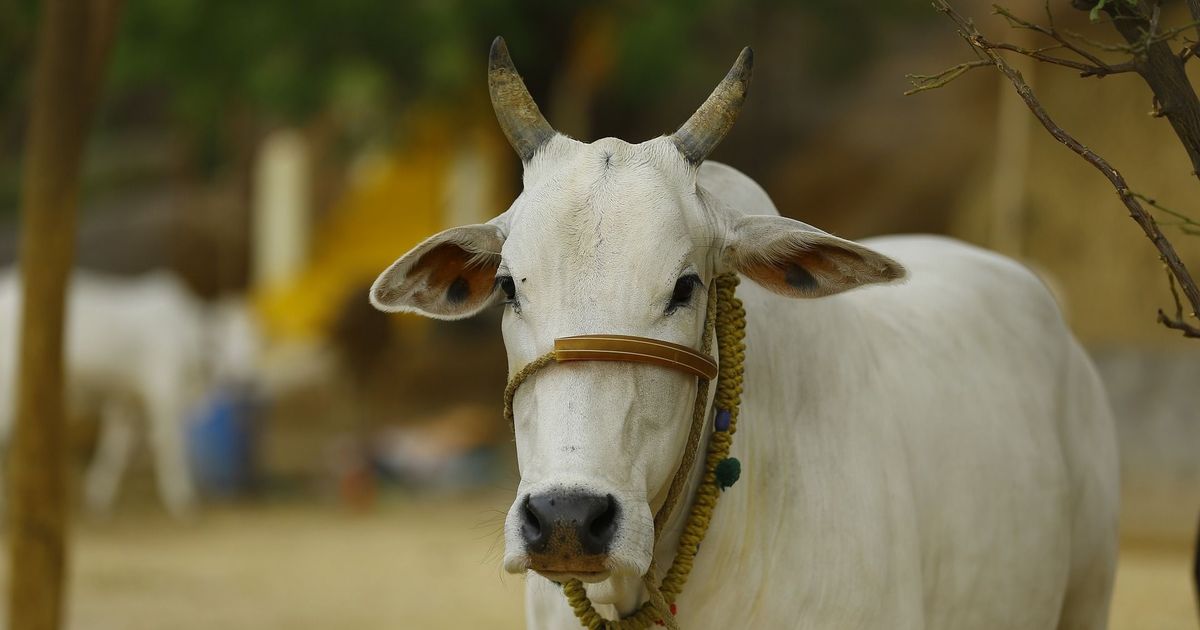Kamdhenu Gau-Vigyan Prachar-Prasar Pareeksha will be conducted by Rashtriya Kamdhenu Aayog (RKA) on February 25 to generate interest among students and the general public about the importance of cows.
Although exams can be stressful, it’s true that every student has to go through them. In a country like India, students often get the chance to appear in various exams every year and test their skills whether it’s National Science Olympiad, National Cyber Olympiad, or National Math Olympiad. These are few exams everybody is acquainted with, but what if I tell you that the government has recently announced a national-level voluntary online exam on ‘Gau-Vigyan’ (cow science).
Yes! that’s right. The government in its bid to ‘infuse curiosity’ and ‘generate interest’ among students and the general public about the importance of cows, has planned to conduct a nationwide voluntary online examination on cow science. If you are thinking that this exam is the first of its kind in the country, you are definitely right about it. The intent of this exam is reportedly to get students and the general public interested in learning about the indigenous cow and its qualities.
The examination – Kamdhenu Gau-Vigyan Prachar-Prasar Pareeksha will be conducted by Rashtriya Kamdhenu Aayog (RKA) on February 25. The commission, known as Rashtriya Kamdhenu Aayog (RKA), comes under the Ministry of Animal Husbandry and Fisheries and was formed in 2019. The commission was instituted in order to ensure the conservation, preservation, protection and development of cows, and their progeny, and is tasked with giving direction to cattle development programmes.
Details regarding the Gau-Vigyan Pareeksha:
Announcing the first-ever unique exam of this kind, Rashtriya Kamdhenu Aayog (RKA) Chairman Vallabhbhai Kathiria said that this exam on cow science will be held annually and students of primary, secondary, and college-level students, as well as the general public, can appear for the examination without any fee. Also, the exam will be held in 12 regional languages apart from Hindi and English.
Further, Kathiria revealed that the Aayog has prepared a study material on cow science. The questions in the online examination will be objective type, and the syllabus will be recommended on the website of the RKA. He also said that the exam results will be declared immediately and certificates will be given to every participant.
The examination is designed to stimulate the interest of students and the general public in the anatomy and mechanism of the cow. Also, it will help to educate the applicants on the benefits of cows and make them aware of the unexplored potential and business opportunities a cow can offer, even after it stops giving milk.
Aayog’s suggestions are part of the syllabus:
The latest suggestions given by Rashtriya Kamdhenu Aayog (RKA) on the treatment of diseases have been made as part of the ‘reference material’ for the first cow science examination in India. The document submitted by the Cow Commission of India consists of the information that a number of diseases can be cured by consuming Panchgavya products — cow milk and its derivatives as well as cow urine and dung.
According to the 54-page document, ‘gaumutra’ (cow urine) acts as an antidote for phlegm, abdominal diseases, eye diseases, bladder diseases, lumbar, respiratory diseases, inflammation, and liver diseases. The document elaborates the medicinal value of Indian cows’ milk, urine, dung, ghee, curd and also says that cow products are used in ‘Panchgavya Chikitsa’ to cure many harmful diseases.

